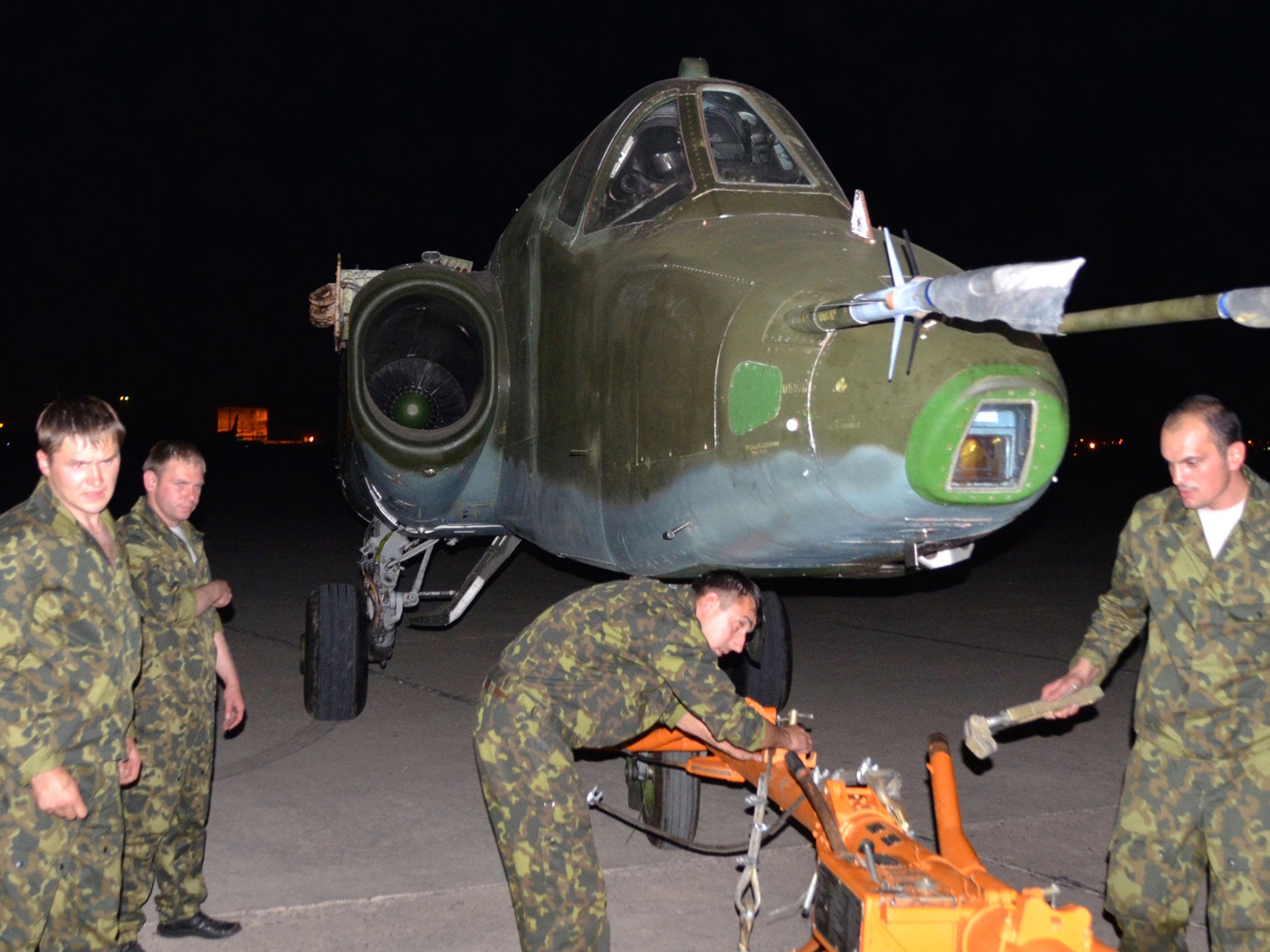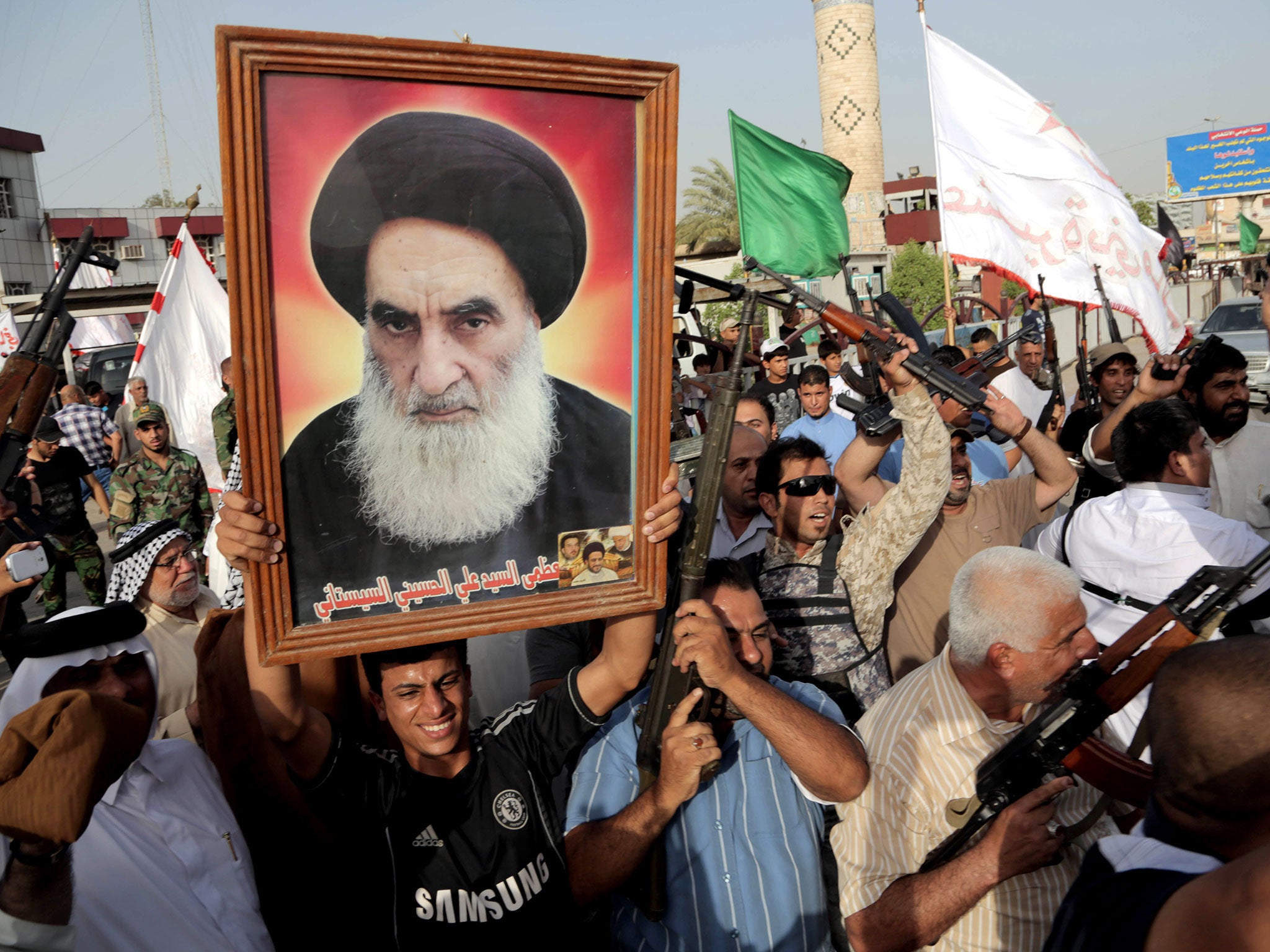Iraq crisis: Tikrit turns into a 'town of ghosts' as Isis occupation leaves Prime Minister Nouri al-Maliki on the edge
As the Russians send in military hardware and the Shia’s religious leader calls for his resignation, the Iraqi Prime Minister’s grip on power rests on ousting Isis insurgents from the city. Patrick Cockburn reports from Baghdad

Your support helps us to tell the story
From reproductive rights to climate change to Big Tech, The Independent is on the ground when the story is developing. Whether it's investigating the financials of Elon Musk's pro-Trump PAC or producing our latest documentary, 'The A Word', which shines a light on the American women fighting for reproductive rights, we know how important it is to parse out the facts from the messaging.
At such a critical moment in US history, we need reporters on the ground. Your donation allows us to keep sending journalists to speak to both sides of the story.
The Independent is trusted by Americans across the entire political spectrum. And unlike many other quality news outlets, we choose not to lock Americans out of our reporting and analysis with paywalls. We believe quality journalism should be available to everyone, paid for by those who can afford it.
Your support makes all the difference.Iraqi army troops have advanced to the entrance of Tikrit but insurgents hold the rest of the city, from which people have fled in expectation of a battle. There is no electricity or water and the streets are empty.
“It is a town of ghosts,” said Abu Nahib who had just brought his sister from Tikrit to Baiji, where fighters from the Islamic State of Iraq and the Levant (Isis) are in control, though not of the crucial oil refinery. “Isis still holds Tikrit but there is a huge number of soldiers just outside it and there has been random bombing.” The government says troops landed by helicopter have taken parts of Tikrit University and have positioned snipers in its high buildings.
It is important for the Iraqi government to win some sort of success at Tikrit or elsewhere, after three weeks of military reverses at the hands of Isis and Sunni militant groups. The regular army, which is 350,000 strong, has previously disintegrated or failed to fight against smaller detachments of insurgents.
The recapture of Tikrit would be useful for the Prime Minister, Nouri al-Maliki, who is under sustained criticism for driving the five or six million strong Sunni community into a revolt led by Isis. He appointed the senior military officers who have failed to fight and, in some cases, have abandoned their soldiers and fled.
Mr Maliki’s chances of holding on to his job when parliament meets tomorrow have been damaged by Grand Ayatollah Ali al-Sistani, the most revered Shia religious leader, coming out against him more and more openly. Mr Sistani is immensely influential among Iraq’s Shia who make up 60 per cent of Iraq’s 33 million people. On Friday, he called through a representative for a new president, speaker of parliament and prime minister to be chosen. Iraqi leaders and their foreign allies are hopeful that a prime minister more open to accommodation with the Sunni than Mr Maliki would split the alliance of Sunni tribes, army officers and local leaders led by Isis.
The Isis offensive appears to have lost some of its momentum as its fighters enter mixed Sunni-Shia areas north of Baghdad. Tens of thousands of Shia volunteers have gone to the front to reinforce regular units. In Tahrir Square in central Baghdad at the weekend, employees of Al-Sharq, a Shia newspaper, were signing on as volunteers in the middle of a demonstration. One of them, Abu Sadiq, said that if Isis “come to Baghdad then we will fight to the last drop of our blood”.
His friend, Adel Salman, said he looked to the Iranian Revolutionary Guards Corps led by Qasem Soleimani for leadership on the grounds that “the Iranians are Muslims and Shia”. He did not want American troops to come back to Iraq, but said that American advisers and air strikes would help.
A sign of foreign support was the arrival of five Sukhoi SU-25 Russian war planes, though it will take four or five days to make them ready for action. The idea is that they will provide close air support and be able to destroy Isis’s columns of pick-ups crammed with fighters.
Iraq has a very small air force; its commander, Lieutenant-General Anwar Hama Amin, said: “These jets will enter service within a few days … in order to support the units and to fight the terrorist [Isis] organisation.”

The partial collapse of the Iraqi security forces, consisting of 350,000 soldiers and 650,000 police, on 10 June remains one of the greatest debacles in military history. Failure to make progress at Tikrit would inflict further damage on the Iraqi military’s reputation, but retaking the city, famous throughout the world as Saddam Hussein’s home town, would be the sort of tangible success the army needs.
The army has not only been driven out of three Iraqi provinces this month, but was unable to recapture Fallujah from Isis in the six months after it was lost in January.
Isis may be unable to capture the capital, which has a population of seven million, the majority Shia. But Isis could also inflict serious damage on Baghdad by shutting the international airport by firing a few mortar rounds at it. For the past three weeks, the city has been quiet, suggesting that Isis has not activated test cells within Sunni enclaves in and around Baghdad.
Isis could try to cut off the capital from the south by gaining control of Sunni towns such as Iskandaria and Mahmoudiya just south of Baghdad. There are some signs its fighters are trying to sever the road to Najaf.
In Jurf Al Sakhar, 53 miles from Baghdad, militants from Isis lunched an attack.
Three police sources said at least 60 Isis fighters had been killed, along with more than 15 Iraqi security forces members, when the militant group launched a major attack on an army camp just east of the city, firing mortars and rocket-propelled grenade rounds.
“The Isis terrorists fired many mortars at the camp and then started their offensive. They managed to break into the camp but could not hold their positions due to army helicopter cover,” a police colonel said.
In Baghdad morale has improved in the past week, but might easily collapse if Isis was able to win more spectacular successes.
Join our commenting forum
Join thought-provoking conversations, follow other Independent readers and see their replies
Comments